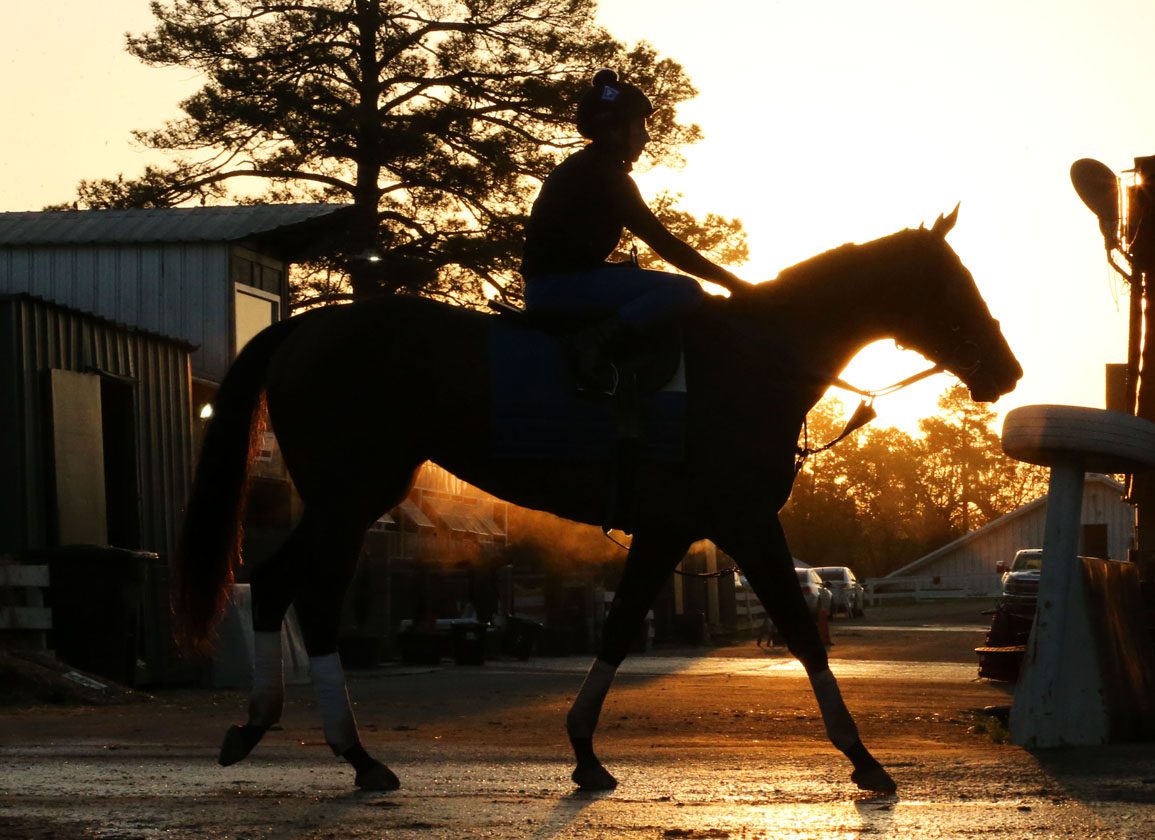By T. D. Thornton
The Arkansas-based lawsuit filed six weeks ago that is the most recent among five separate federal complaints attempting to derail the Horseracing Integrity and Safety Act (HISA) via alleged constitutionality claims was broadly rebuffed Monday in separate legal filings by the defendants in the case, who are executives with the HISA Authority and the Federal Trade Commission (FTC).
The plaintiffs, led by Bill Walmsley, president of the Arkansas Horsemen's Benevolent and Protective Association (HBPA), and Jon Moss, the executive director of the Iowa HBPA, had asked a judge in United States District Court (Eastern District of Arkansas, Northern Division) on Apr. 6 to declare HISA unlawful and to impose an injunction prohibiting the defendants from enforcing the Anti-Doping and Medication Control (ADMC) rules scheduled to go into effect May 22.
The HISA Authority's opposition brief stated that the plaintiffs in this case, much like those in the other four cases currently swirling in the federal court system, represent only “a faction of the industry long opposed to any change” who continue to “search for a favorable forum” by essentially making similar arguments in front of different judges.
And, the HISA Authority's filing pointed out, both Walmsley and Moss are already involved as parties who have taken various legal actions in three of the other four anti-HISA cases.
“Apparently discontent with those courts' rulings, the Iowa HBPA, Walmsley, and Moss now seek the same extraordinary relief here,” the HISA Authority's May 15 filing stated.
The HBPA-affiliated plaintiffs wrote in their complaint last month that HISA “barely pretends to comply with the Constitution's separation of powers. The Act allows a private corporation to issue binding rules with no guiding principle. The FTC's ostensible oversight serves as a mere mirage.”
The HISA Authority saw the situation differently in its filing.
“The vast majority of industry participants and horseracing states have welcomed the uniform national standards, which took effect on July 1, 2022. Two [presidential] administrations have now supported the law and two bipartisan Congresses have embraced it–including through a statutory amendment that reinforced the Act's constitutionality in December 2022,” the HISA Authority's filing stated.
“Plaintiffs come nowhere near the showing required for a court to dismantle this critical federal regulatory program. Most notably, Plaintiffs cannot demonstrate a likelihood of success on the merits: All four federal judges that have considered Congress's recent amendment to HISA have concluded that the Act is constitutionally sound,” the HISA Authority's filing stated.
“Plaintiffs next rely on a meritless public nondelegation claim that the challengers in the other cases wisely abandoned, or did not consider worth [pursuing], in light of the clear intelligible principles Congress provided,” the HISA Authority's filing stated.
“And Plaintiffs' final claim under the Appointments Clause is contradicted by the undisputed fact that the Authority is not a governmental entity [and] by the decisions of the two federal courts that have already denied the same Article II claim,” the HISA Authority's filing continued.
“None of the other preliminary injunction factors favor Plaintiffs, either. Plaintiffs fail to show irreparable harm: They have been subject to HISA's racetrack safety rules for over 10 months and to similar anti-doping rules under State law for years; purses in Arkansas and Iowa have surged; and the racing season in Arkansas has now ended,” the HISA Authority's filing stated.
“The balance of harms and the public interest also weigh heavily against disrupting a federal regulatory scheme that Congress has mandated (twice) and that has enjoyed substantial compliance already,” the HISA Authority's filing stated. “This Court should deny Plaintiffs' motion for a preliminary injunction.”
The FTC's May 15 filing put it this way: “[The plaintiffs] do not come within a furlong of demonstrating, with evidence, that any purported 'harm is certain and great and of such imminence that there is a clear and present need for equitable relief.'”
Not a subscriber? Click here to sign up for the daily PDF or alerts.






